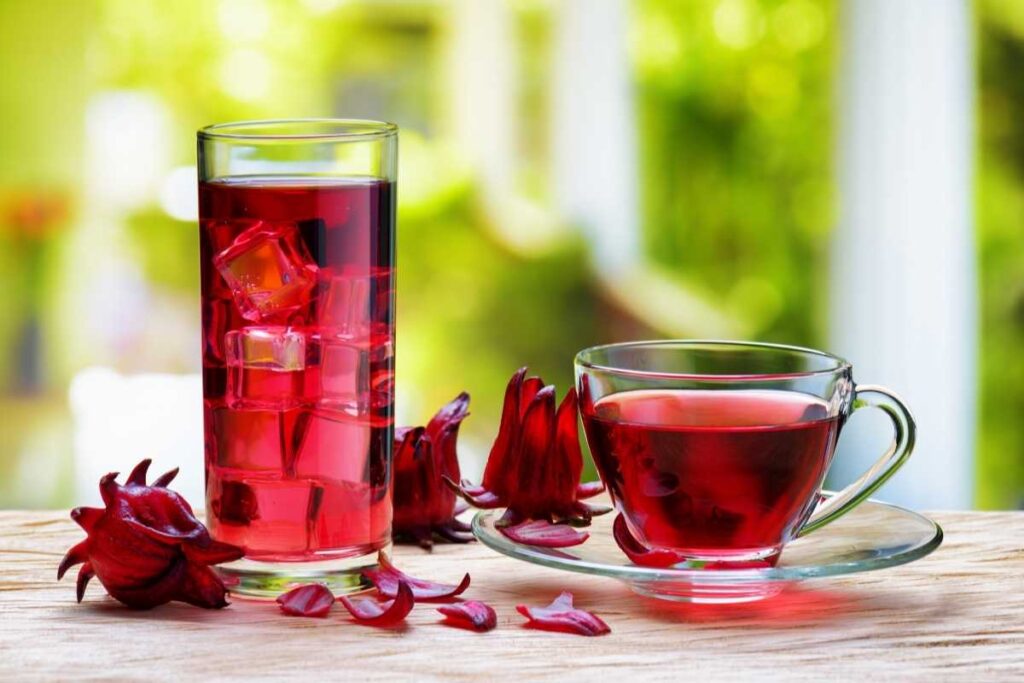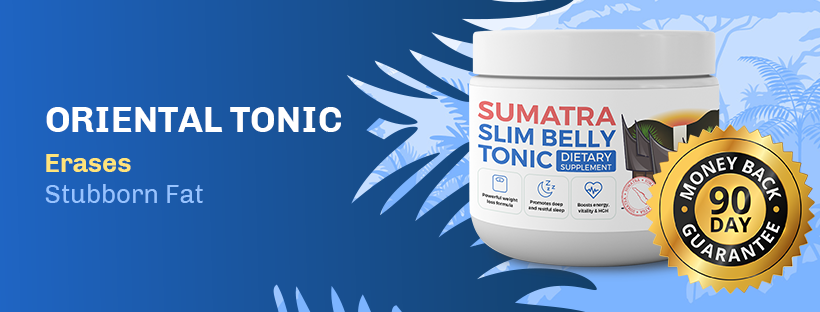Hibiscus Tea: 7 Surprising Health Benefits

Looking for a refreshing and flavorful drink? Look no further than hibiscus tea! Made from the hibiscus plant, specifically the hibiscus sabdariffa species, this herbal tea is enjoyed both hot and cold and has a tart flavor that can be enhanced with additions like nettle or black tea. The main ingredient in hibiscus tea is the vibrant and unique-tasting hibiscus flowers. Whether you’re sipping it on a hot summer day or enjoying a warm cup in the winter, your first taste of hibiscus tea is sure to be memorable. So why not brew it in a teapot using fresh ingredients and pair it with your favorite food? Hibiscus tea is just one of many teas that can elevate your drinking experience.
Health Benefits of Hibiscus Tea:
Hibiscus tea is one of the most popular herbal teas made from the dried calyx of the hibiscus flower. It has been consumed for centuries in various cultures and is known for its numerous health benefits. To make a delicious cup, simply steep the dried flowers in a teapot with hot water or try a refreshing cold brew. Unlike traditional teas, hibiscus tea is naturally caffeine-free, making it a great choice for those looking to reduce their caffeine intake.
Improved Liver Health
Studies have shown that herbal teas, such as hibiscus tea, when consumed with hot water, may help with weight loss and high blood pressure. Additionally, hibiscus tea may improve liver health by reducing oxidative stress and inflammation in the liver, which can prevent liver damage and improve overall liver function.
Antioxidant Properties
Hibiscus tea, also known as agua de jamaica, is rich in antioxidants, making it a great choice for liver health. Cold brew or hot water can be used to prepare this tea, which can help protect your body from damage caused by free radicals. Free radicals are unstable molecules that can cause cellular damage and contribute to aging and disease.
Reduced Risk of Heart Disease
A helpful report from a study suggests that drinking cold brew hibiscus tea may be beneficial for reducing the risk of heart disease. The study found that the tea may help lower blood pressure, reduce cholesterol levels, and improve blood sugar control. Additionally, hibiscus tea is also known as “jamaica” in some regions.
Lowered Risk of Diabetes
Drinking hibiscus tea regularly may also improve liver health, according to a study. The tea, also known as Jamaica, has been found to reduce liver damage in lab tube studies. Additionally, it can lower the risk of developing type 2 diabetes by improving insulin sensitivity and reducing blood sugar levels, which are both important factors in preventing diabetes.
Weight Loss Aid
If you’re looking to improve your liver health and regulate blood sugar levels, adding hibiscus tea to your diet may be beneficial according to a helpful report. Study has shown that it can also help reduce body fat, waist circumference, and BMI (body mass index), making it a natural weight loss aid.
Reduced Blood Pressure
High blood pressure is a common condition that can lead to serious health problems if left untreated. According to a study, drinking hibiscus tea regularly may help lower blood pressure levels naturally, reducing your risk of hypertension-related complications. In tube studies, hibiscus tea has also shown promising results in lowering blood pressure. It’s important to test your blood pressure regularly and consider incorporating nettle into your diet as well for additional benefits.
Prevention of Metabolic Syndrome
Metabolic syndrome is a group of conditions that increase your risk of heart disease, stroke, and diabetes. Drinking hibiscus tea has been shown in tube studies and test to improve several factors associated with metabolic syndrome, including blood pressure, cholesterol levels, and insulin sensitivity. The study suggests that brewing hibiscus tea using a bag may be an effective way to reap its potential health benefits.
Potential Risks Associated with Consuming Hibiscus Tea:
Hibiscus tea, brewed from a bag of dried flowers, is a popular herbal beverage known for its unique taste and various health benefits. However, there are potential risks associated with consuming hibiscus tea that people should be aware of. Studies have shown that excessive intake of hibiscus tea may cause damage to the liver and kidneys, and a tube test is recommended to monitor these organs’ function.
Risk of Liver Damage
Excessive consumption of hibiscus tea can lead to liver damage through the hepatic tube. This is because hibiscus contains compounds that can be toxic to the liver when consumed in large amounts. People who have pre-existing liver conditions or are taking medications that affect the liver should avoid drinking too much hibiscus tea.
High Blood Pressure
While hibiscus tea has been shown in some studies to lower blood pressure in some people, it can also cause a drop in blood pressure that may be dangerous for those with already low blood pressure. If you have low blood pressure, it’s best to consult your doctor before adding hibiscus tea to your diet as a test tube analysis may not provide an accurate representation of its effects.
Anti-Cancer Properties
Some studies suggest that hibiscus tea bag may have anti-cancer properties due to its high levels of antioxidants. However, more research is needed to confirm this claim. It’s important not to rely on hibiscus tea bag as a sole treatment for cancer and always consult with a healthcare professional.
Risk of Bacterial Infections
Improperly brewed and stored hibiscus tea in a bag can increase the risk of bacterial infections such as salmonella and E.coli, according to studies. To reduce the risk of infection, make sure you follow proper brewing instructions and store your brewed tea in the refrigerator for no more than 2-3 days.
It’s important to note that while these risks exist, they are relatively rare when consumed in moderation and following proper preparation methods. However, certain populations should avoid consuming hibiscus altogether, especially when drinking herbal tea, green tea, black tea, or iced tea.
Who Should Not Drink Hibiscus Tea?
Pregnant women should avoid consuming large amounts of hibiscus tea as studies suggest it can cause uterine contractions and potentially lead to miscarriage. People with a history of hormone-sensitive cancers should also avoid hibiscus tea due to studies indicating its potential estrogenic effects.
How to Properly Brew Hibiscus Tea:
Brewing hibiscus tea is an art that requires the right technique, temperature, and time. According to studies, the process of brewing hibiscus tea perfectly can provide health benefits such as lowering blood pressure and reducing inflammation. We’ll guide you through the process of brewing hibiscus tea to ensure you get the best results.
Use Fresh Filtered Water to Brew Hibiscus Tea
The quality of water affects the taste of your tea. So, it’s essential to use fresh filtered water for brewing hibiscus tea. Tap water contains chlorine and other impurities that can affect the flavor profile of your tea. Therefore, using filtered water will ensure that you get a clean taste.
For Hot Brew, Bring the Water to a Boil and Let It Cool for a Minute Before Steeping the Tea
To make hot hibiscus tea, bring fresh filtered water to a boil in a pot or kettle. Once it reaches boiling point, turn off the heat and let it cool down for one minute before steeping your hibiscus tea bags or loose leaves. Steeping time varies between 5-10 minutes depending on how strong you like your tea.
For Cold Brew, Add Hibiscus Tea to Cold Water and Let It Steep in the Refrigerator for 6-8 Hours
Cold-brewed hibiscus tea is perfect for hot summer days. To make cold-brewed hibiscus tea, add loose leaf or teabags into cold filtered water in a pitcher or jar. Place it in the refrigerator and let it steep for 6-8 hours or overnight. The longer you steep it, the stronger the flavor will be.
Hibiscus Tea Can Be Brewed Multiple Times but Will Become Weaker with Each Subsequent Brew
Hibiscus flowers have been studied extensively and found to contain high levels of antioxidants that release gradually during each brew; however, after multiple brews (usually three), there will be less flavor and fewer health benefits. So, it’s recommended to use fresh hibiscus tea for each brew.
Test Tube Studies and Hibiscus Extract
Hibiscus tea has been used for centuries in traditional medicine to treat various ailments. Recent studies have shown that hibiscus extract, a concentrated form of the plant, may have significant health benefits. In this section, we will discuss the findings of several test tube studies on hibiscus extract and its potential effects on blood pressure and cholesterol levels.
Antioxidants in Hibiscus Extract
Hibiscus extract, commonly found in herbal tea, contains high levels of polyphenols, which are antioxidants that can help protect the body from damage caused by free radicals. Free radicals are unstable molecules that can cause oxidative stress and contribute to chronic diseases such as cancer, diabetes, and heart disease. The polyphenols in hibiscus extract may help prevent or reduce oxidative stress and inflammation in the body. Additionally, hibiscus extract can be found in green tea, black tea, and iced tea.
Lowering Blood Pressure and Cholesterol Levels
Several test tube studies have shown promising results regarding the potential effects of hibiscus extract in RRL tea and tea bags on blood pressure and cholesterol levels. One study found that hibiscus extract significantly reduced both systolic and diastolic blood pressure in rats with hypertension. Another study showed that when rabbits were fed a high-cholesterol diet supplemented with hibiscus extract in RRL tea, their total cholesterol levels decreased by 39%.
While these animal studies are encouraging, more research is needed to determine whether hibiscus extract can have similar effects in humans. Human studies have been limited but have shown some promise. A 2010 study published in The Journal of Nutrition found that drinking three cups of hibiscus tea per day for six weeks resulted in a significant decrease in systolic blood pressure compared to a placebo group.
Potential Risks and Considerations
It’s important to note that while hibiscus extract may offer health benefits, studies have shown that drinking hibiscus rrl tea may also provide similar advantages. However, it should not be used as a replacement for prescribed medications without consulting a healthcare professional first. Hibiscus extract may interact with certain medications, including diuretics and antihypertensive drugs. People who are taking medication for hypertension or high cholesterol should talk to their doctor before trying hibiscus extract or consuming hibiscus rrl tea.
Southeast Asia and Hibiscus Tea
Southeast Asia is a region known for its love of herbal teas, and hibiscus tea is one of the most popular drinks in the area. This tea can be served hot or cold, making it perfect for any weather. In some countries, hibiscus tea is also known as “agua de jamaica” or simply “jamaica.”
To make hibiscus tea, you can use either tea bags or loose flowers in a teapot with hot water. Some people prefer to add sugar to their hibiscus tea, while others enjoy it unsweetened.
In Southeast Asia, hibiscus tea is often enjoyed on its own or paired with food. It’s a refreshing drink that can be enjoyed throughout the day.
Brewing Hibiscus Tea
Brewing hibiscus tea is easy and can be done using either tea bags or loose flowers. To make iced hibiscus tea, simply brew the flowers in hot water and let them steep for around 10 minutes before removing them from the pot. Add ice cubes to cool down the drink and serve it chilled.
For hot hibiscus tea, boil water in a pot and add your desired amount of loose flowers or a teabag into the pot. Cover it with a lid and let it steep for about 5-7 minutes depending on how strong you want your drink to be.
Sweetening Your Hibiscus Tea
Some people prefer to sweeten their hibiscus tea by adding sugar while others find that it tastes better without any added sweeteners. If you do decide to add sugar to your drink, we recommend using natural sweeteners like honey instead of processed sugar.
Where To Find The Best Hibiscus Tea
If you’re looking for the best place to find delicious hibiscus tea, Southeast Asia is the place to be. In countries like Thailand, Malaysia, and Indonesia, you can find hibiscus tea in many cafes and restaurants. Some street vendors also sell this refreshing drink.
Tea Sommelier’s Tips for Making Hibiscus Tea
If you’re a tea lover looking for something new and refreshing, hibiscus tea is an excellent choice. This tart and tangy beverage is made from the dried petals of the hibiscus flower, which are known for their ruby-red color and citrusy flavor. Here are some tips from a tea sommelier to help you make the perfect cup of hibiscus tea.
Use Filtered Water
The quality of your water can significantly affect the taste of your hibiscus tea. To ensure that your brew tastes as pure as possible, use filtered water instead of tap water. This will remove any impurities or chemicals that may alter the flavor.
Steep for 5-7 Minutes
To achieve the perfect balance of flavor and color in your hibiscus tea, steep it for 5-7 minutes. This allows enough time for the petals to release their natural oils and flavors into the water without becoming too bitter or overpowering.
Add a Sweetener
Hibiscus tea has a naturally tart taste that some people find unappealing. To enhance its flavor and make it more enjoyable, add a sweetener like honey or sugar. However, avoid using artificial sweeteners as they can leave an unpleasant aftertaste.
Now, let’s answer some common questions about hibiscus tea:
- Can you make hibiscus tea from any hibiscus? You can only make hibiscus tea from specific varieties of hibiscus flowers, such as Hibiscus sabdariffa. Other types of hibiscus may not have the same flavor profile or health benefits.
- Where to plant hibiscus tea? Hibiscus plants thrive in warm climates with plenty of sunshine and well-drained soil. If you live in a cooler climate, you can still grow hibiscus plants indoors or in a greenhouse.
- How to make hibiscus tea in Tamil? To make hibiscus tea in Tamil, follow the same steps as making it in English. The only difference is the language used to describe the process.
- Why hibiscus tea is sour? Hibiscus tea has a naturally tart taste due to its high levels of citric acid. This acidity gives it a refreshing and tangy flavor that many people enjoy.
- Why does hibiscus tea curdle milk? Hibiscus tea is acidic, which can cause milk to curdle when added. If you want to add milk to your hibiscus tea, try using non-dairy alternatives like almond or oat milk instead.
Conclusion: Should You Drink Hibiscus Tea?
In conclusion, hibiscus tea offers a range of potential health benefits, including reducing blood pressure and improving liver health. However, it is important to be aware of the potential risks associated with consuming hibiscus tea, such as interactions with certain medications and possible adverse effects on fertility.
To properly brew hibiscus tea, use boiling water and steep for 5-10 minutes before adding sweetener or other flavors. Test tube studies have shown promising results for hibiscus extract in treating various conditions.
In Southeast Asia, hibiscus tea is a popular beverage enjoyed both hot and cold. Tea sommeliers recommend using high-quality loose leaf tea and experimenting with different brewing methods to find your perfect cup.
Overall, if you are looking for a refreshing and potentially beneficial beverage option, hibiscus tea may be worth trying. As with any new addition to your diet, it is important to consult with a healthcare professional if you have any concerns or preexisting medical conditions.
So why not give this colorful and flavorful drink, made with hibiscus flowers and hibiscus extract from the hibiscus sabdariffa plant, a try? Your taste buds (and possibly your health) may thank you!




